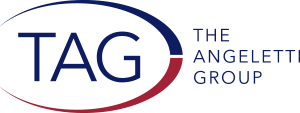In today’s higher education environment, small colleges face intense pressure to balance limited budgets, meet student needs, and remain mission-driven. According to BestColleges.com, more than 81 institutions have shuttered their doors since 2020, with additional closures predicted. Financial sustainability is a growing concern and one that demands bold, integrated strategies across advancement, finance, and leadership.
The Angeletti Group has helped multiple small colleges stabilize operations and build new momentum by focusing on what matters most: strategic fundraising, sound fiscal leadership, and actionable plans that restore confidence across campus and with key stakeholders.
Three critical areas of focus have helped turn the tide for some small institutions that we have partnered with.
- Strengthen Advancement to Drive Immediate and Long-Term Revenue
With enrollment shifts and public funding constraints, advancement must do more than support annual operations. It must drive institutional strategy. One of the most effective approaches is launching a short-term, high-impact campaign aligned with the college’s annual goals. These campaigns focus on segmentation, clear metrics, and customized appeals to activate donor pipelines and generate critical cash flow.
Even in a turnaround scenario, targeted donor outreach and personalized solicitation strategies can increase current-year giving. At the same time, institutions can deepen engagement with alumni, donors, and friends through consistent communications and stewardship, laying the groundwork for future major gifts and campaigns.
- Leverage Endowment Flexibility for Greater Financial Agility
Endowments are often a source of stability but they can also be a strategic tool in times of uncertainty. By working closely with legal counsel and donors, colleges can explore opportunities to reclassify certain restricted funds, enabling a portion of endowment dollars to be used more flexibly in support of institutional priorities.
In several cases, The Angeletti Group has helped clients unlock these resources, freeing up funds for operational support, easing financial ratios, and reducing pressure on tuition revenue. Institutions can also revisit their endowment investment strategy to align with long-term goals, increase earnings, and support multi-year planning.
- Build Stronger Financial Leadership to Stabilize and Strategize
Effective leadership is critical during times of transition. For small institutions facing leadership vacancies or financial strain, interim CFO support or guidance can help restore confidence and provide a steady hand to guide decisions. This includes implementing rolling cash flow forecasts, budget discipline, and immediate cost-containment strategies to stabilize operations.
Additionally, we can provide assistance by acting as a liaison between the institution and key external stakeholders, including the Department of Education, bondholders, and auditors, which can reinforce trust and support viability.
Conclusion
Small colleges are resilient but resilience alone isn’t enough in today’s complex landscape. Through intentional investment in advancement, strategic use of endowment assets, and the right financial leadership, institutions can move from a place of risk to one of renewal.
The Angeletti Group partners with college presidents and boards to develop actionable strategies that drive impact and ensure long-term viability. Let’s explore how our Small College Solutions can support your institution’s future.


